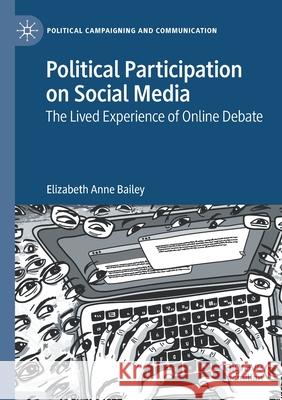Political Participation on Social Media: The Lived Experience of Online Debate » książka
topmenu
Political Participation on Social Media: The Lived Experience of Online Debate
ISBN-13: 9783030652234 / Angielski / Miękka / 2022 / 228 str.
Political Participation on Social Media: The Lived Experience of Online Debate
ISBN-13: 9783030652234 / Angielski / Miękka / 2022 / 228 str.
cena 459,42 zł
(netto: 437,54 VAT: 5%)
Najniższa cena z 30 dni: 459,42 zł
(netto: 437,54 VAT: 5%)
Najniższa cena z 30 dni: 459,42 zł
Termin realizacji zamówienia:
ok. 20 dni roboczych.
ok. 20 dni roboczych.
Darmowa dostawa!
Kategorie BISAC:
Wydawca:
Palgrave MacMillan
Język:
Angielski
ISBN-13:
9783030652234
Rok wydania:
2022
Ilość stron:
228
Waga:
0.30 kg
Wymiary:
21.01 x 14.81 x 1.32
Oprawa:
Miękka
Wolumenów:
01
Dodatkowe informacje:
Wydanie ilustrowane











